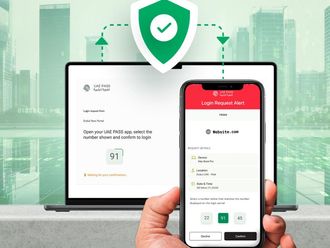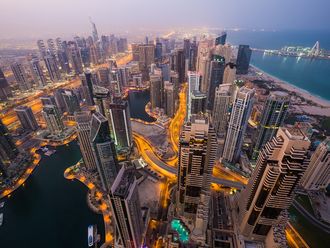To foresee what we should expect in 2018, it is important to note how the many changes we experienced over the past year have paved the way for advancement in what is becoming a mature real estate market in Dubai. In the first quarter of 2017, there was an introduction of the first mid-income affordable villa/town house community, which provided over 1,800 units of new supply.
The average starting sales price was Dh1.6 million for a three-bedroom town house and rents started in the Dh130,000 range. Needless to say, this was a big hit with buyers and renters.
The off-plan sales market also revived in 2017, whereby 70 per cent of total transactions were off-plan. The main reasons were the payment plans and lower total price points due to smaller unit sizes, which lured many investors and end users to off-plan. We also saw an introduction of innovative concepts of collaborative and sustainable communities with open, shared living spaces such as UNA in Town Square.
Affordability was also another hot topic. Almost 82 per cent of residential transactions in 2017 were below Dh2 million, with almost half below Dh1 million. According to the Property Monitor Index, on average, apartment and villa/town house sale prices saw a marginal decline of 2 per cent. Residential rents declined at a more pronounced rate of 4 per cent and which resulted in a yield compression at most communities.
This is a positive sign that shows that the market continues to mature as it becomes less volatile and investors are willing to accept lower yields. With less risk, people have far more confidence over the longevity, sustainability and long-term outlook.
In 2017, Dubai had more than 13,800 apartments and over 7,800 villa/town houses handed over. This was a contributing factor to price and rental declines. We also saw new trends where landlords had no choice but to lower rents, offer rent-free months, multiple cheques and include incentives such as landscaping to entice a new tenant or keep their existing one. Landlords were also under pressure to increase the number of rental cheques in a bid to be more flexible, which led to the majority of rental agreements being paid in four cheques or more.
The outlook
* Off-plan and new communities
Off-plan sales will most likely continue strong and developers will get even more creative with their payment plans and introduce rent-to-own schemes. We also might see banks offer creative new products catering to the off-plan market, especially for end users and first-time buyers. We will also see more community concepts based around sustainability and affordability while taking a holistic approach to shared living spaces both indoor and outdoor.
There is much maturity still needed in the off-plan market and new regulations will possibly be introduced to better protect investors and offer new development options in the affordable category. The Property Monitor Supply Tracker shows over 54,000 units are expected to be completed and handed over in 2018, while the materialisation rate will most likely be in line with recent years and we will probably see this number between 16,000 to 20,000 of new units.
* Innovation in real estate ownership
We are likely to be introduced to new ways of investing in real estate with concepts such as crowdfunding. Crowdinvesting is where a group of individuals collectively purchase a property. Investors receive proportional legal share of the property, typically through equity in a special purpose vehicle operated by the online crowdfunding platform. The return consists of regular rental income and potential capital appreciation at the time of the sale.
Crowdfunding is still in its virgin state in the region. The emergence of technology-driven crowdfunding platforms in the West is rapidly reshaping the way individuals make real estate investments.
In the UAE, we are seeing some significant strides, where one technology-driven real estate crowdfunding platform, Smart Crowd, recently received approval from the Dubai Financial Services Authority to establish the region’s first regulated real estate crowdfunding platform. This will enable any individual to invest and own a piece of UAE property for as little as Dh5,000 and will most likely stimulate sales in the secondary market.
According to Siddiq Farid, founder of Smart Crowd, “By bringing affordability in the secondary market we will be able to defer real estate demand from off-plan to secondary. Investors are still willing to put money to work but unwilling to make big bets. Crowdfunding allows them to invest in properties that are already generating returns so they can get paid while they wait for capital appreciation.”
We are likely to see new regulation introduced regarding joint ownership in property to address these initiatives.
The writer is Partner and Head of Property Monitor at Cavendish Maxwell.












